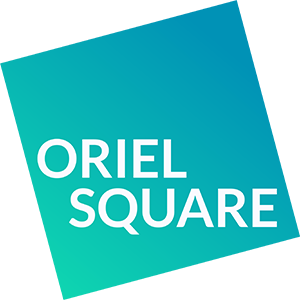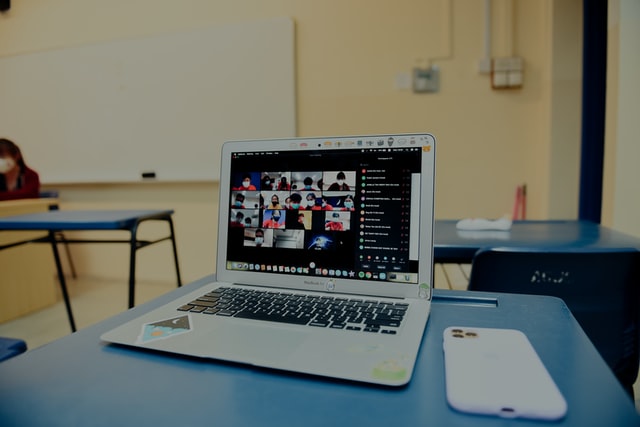Over the last few months, Oriel Square has been part of a swift transformation in the world of professional networking and training. Until recently, even those of us who were frequent users of online video technology would probably have said that there was a limit to the power of that technology when it came to genuinely bringing people together – for that, what everyone really wanted was to be in the same room, to shake hands and look each other in the eye. Never mind the stale pastries, windowless meeting rooms and burnt coffee, and not to mention a crowded or lengthy journey: it was worth it to make contact, human to human.
Over the last few months, Oriel Square has been part of a swift transformation in the world of professional networking and training.
My experience over the last two months has taken these preconceptions about the limits of online meetings, and the value of meeting in the physical world, and knocked them on the head. I would love to hear what your experience in the world of business, culture, education, or anywhere else has been.
Online networking and the semi-social event
Early on in the lockdown, the successful and long-running creative writing group I belong to announced the cancellation of its events, held in a laid-back cafe in north Oxford. Very quickly a few members of the group, myself included, offered to help launch an online version, and the group has continued to run every week since.
It turns out that a facilitated Zoom session lends itself rather well to the format – a small number of nominated readers followed by a chaired Q&A session – and attendees have been equally split between longstanding Oxford members and those from further afield (even if that just means the outlying villages). We’re now experimenting with breakout rooms for the social part of the night. The big challenge is likely to be people’s willingness to donate to keep the group running. But the events undoubtedly work and have some advantages over a face-to-face meeting.
…the events undoubtedly work and have some advantages over a face-to-face meeting.
A couple of weeks later I chaired a very successful inaugural online event for Oxford Publishing Society (OPuS), working with the OPuS committee and panellists from Oxford University Press and the freelance community to work out the best way to translate post-work wine-and-chatting into the online world. Once again the translation worked better than you might expect; the technology on a platform like Zoom makes Q&A easier than face to face sessions, and though the wine-and-canapes networking element was absent, I’m not convinced that ever really leads to much development of new contacts. From the OPuS event, I gained LinkedIn contacts in what seemed to be an easy and professional way of networking.
The technology on a platform like Zoom makes Q&A easier than face to face sessions…
Verbal and non-verbal communication
The best thing about both events is that with a robust connection and platform and with encouragement to use video, the human element is not lost; some might argue it is even enhanced in some ways. After all, it isn’t easy to hide in an online event with cameras on (as three business academics remark in this blog: “in online education — every student is in the front row.”)
…with a robust connection and platform and with encouragement to use video, the human element is not lost…
Research confirms that once you have audio and visual contact with other humans, whether online or in the physical world, your interaction is more effective. Michelle Pacansky-Brock, author of Best Practices for Teaching with Emerging Technologies, writes in this blog and elsewhere of the importance of humanising online learning in three key ways: through presence, empathy and awareness.
Research confirms that once you have audio and visual contact with other humans, whether online or in the physical world, your interaction is more effective.
Thinking first about who you are working with online and what they need from you as a person, and second about the exact technology you will use and how you will use it, are the most important lessons I have learnt during this rapid period of change. Cathy Davidson puts it well in this blog on prioritising the human element in online teaching:
“Before we even think about a syllabus or videos or Zoom, think about what it means to be a student. Now.”
Cathy Davidson
My lightbulb moment came during a fantastic online training session run by Neil Shorney of Navanter (I thoroughly recommend his sessions) in which he not only laid out some of these principles but demonstrated them.
Simple tricks such as standing up when you train online so you give yourself the extra enthusiasm generated by gestures, and the extra volume and resonance to the voice that comes with an upright rather than seated posture, worked instantly. That gave me the confidence to try to reproduce online an authentic training experience similar to the one I try to deliver in person. And I hope I succeeded when I ran a three-session series of online CPD on the topic of effective project leadership for BookMachine in late April: you can now sign up to experience the course in asynchronous mode too. I’d love to hear what you think about it if you give it a try.
That gave me the confidence to try to reproduce online an authentic training experience similar to the one I try to deliver in person.
What next?
Communications platforms all over the world are being rapidly improved, scaled up and otherwise added to, and we will no doubt see huge continued development over the next 12 months. Will Zoom, Teams and Hangout stay ahead of the pack? Will we all be using Facebook Messenger Rooms, Sococo or a more obviously social platform like Houseparty or Online Town? Or is a Silicon Valley, Shenzhen or Bangalore start-up about to accelerate past them all?
Communications platforms all over the world are being rapidly improved, scaled up and otherwise added to, and we will no doubt see huge continued development over the next 12 months.
My colleague and co-founder at Oriel Square, John Deans, thinks the breakthroughs to come will be those that allow us rich communication not mediated through the flat screen. Perhaps by bringing us richer audio-visual experiences that give back features missing from current online communication, like eye contact and sense of space; or perhaps through the use of linked tactile objects. It will be fascinating to see what develops and I would love to hear your thoughts and experiences.
If you are interested in finding out how Oriel Square can deliver or help you plan effective and engaging online meetings, training sessions, events or communities, please get in touch. You can find us on Twitter, Facebook and LinkedIn @OrielSquare.

